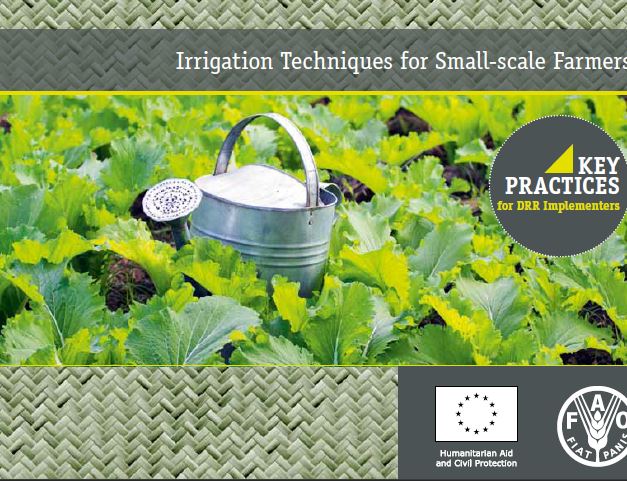irrigation techniques for small scale farmers
The recurrent emergencies in southern Africa caused by natural and biological hazards, such as floods, drought, cyclones, pests and diseases have exposed an important segment of the population to high levels of vulnerability. This is sometimes further aggravated by civil strife, HIV/AIDS and economic setbacks. Climate change, and the expected increase in the frequency and severity of extreme weather events, will affect the agriculture sector, thereby increasing the risks faced by the rural populations, the majority of which are dependent on agriculture for their livelihoods and food security. International emergency programmes have done much to overcome the immediate shocks of extreme events and emergencies by providing immediate food and shelter needs and to redress the negative impacts on people’s lives and their livelihoods. To build the resilience of hazard-exposed small-scale farmers to recurrent natural disasters, the FAO’s interventions promote the spread of improved DRR methods and technologies on key aspects of agriculture and food security sectors, including conservation agriculture, crop production, appropriate seed varieties, land and water use and management, agricultural inputs supply, insurances, environmental rehabilitation, protective afforestation and irrigation, among others. To re-establish food production and create a farming system that provides for better food security and assurances for sustained production and income, the FAO aims to build upon its experiences over the past years in their DRR/M programmes and to provide practical guidance in the introduction of effective techniques and technologies that can assist hazard prone communities to overcome recurrent threats. The introduction of appropriate agricultural water management techniques, including irrigation, would provide an attractive way to rapidly re-establish production and income, and to increase significantly the resilience of the local population to overcome subsequent emergencies.
